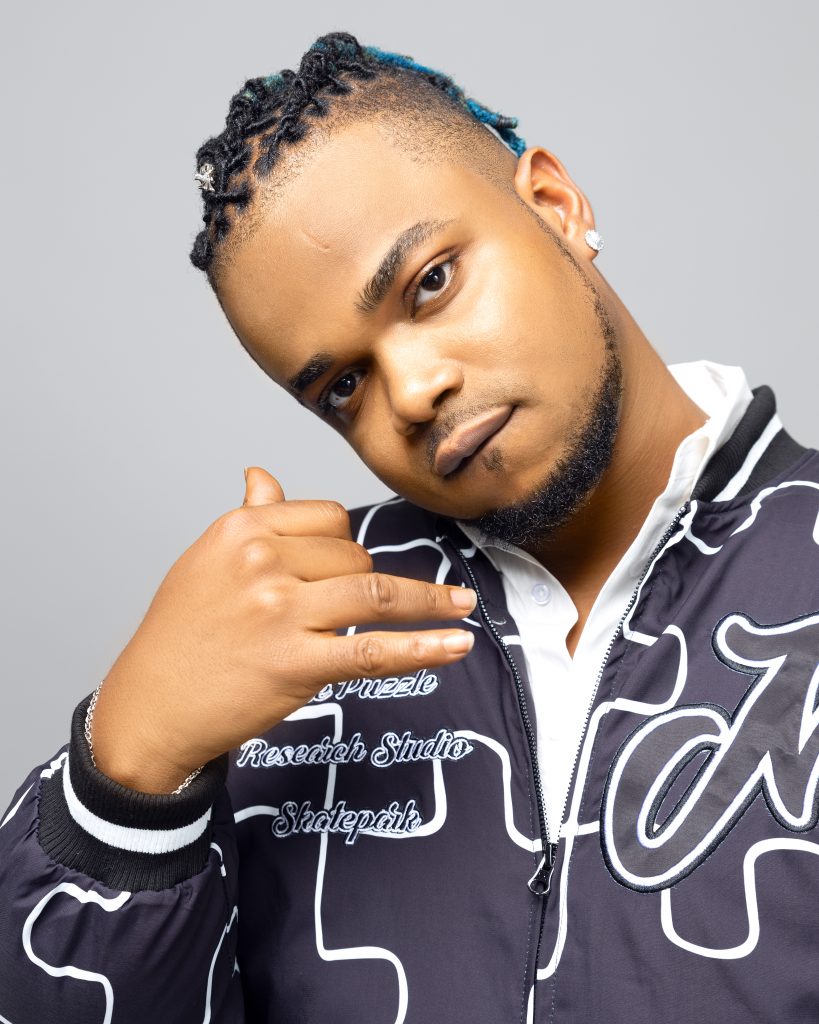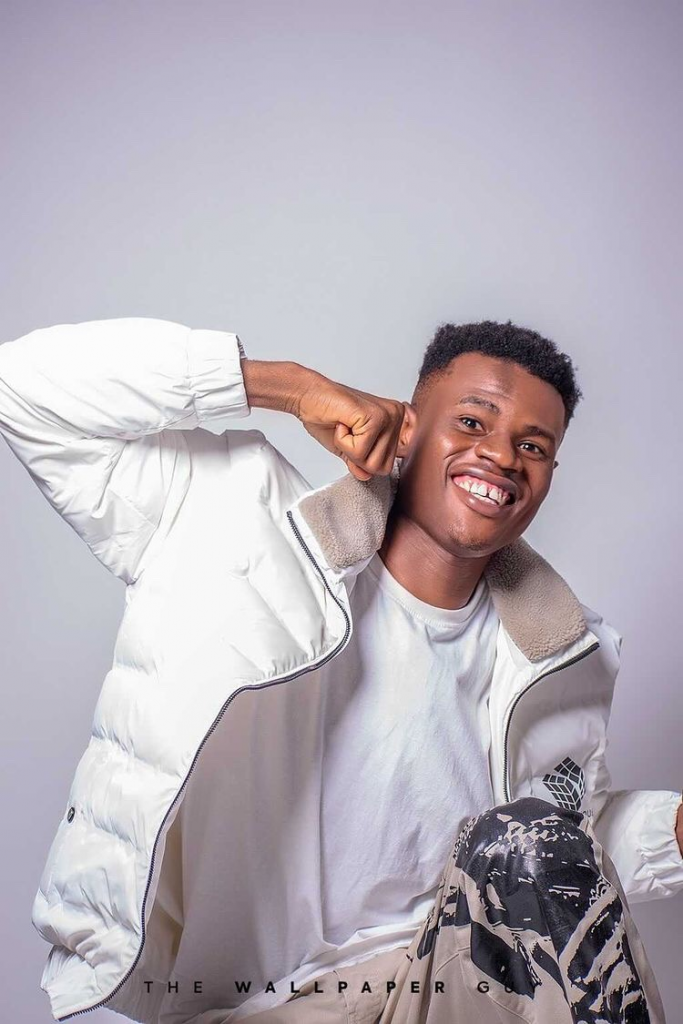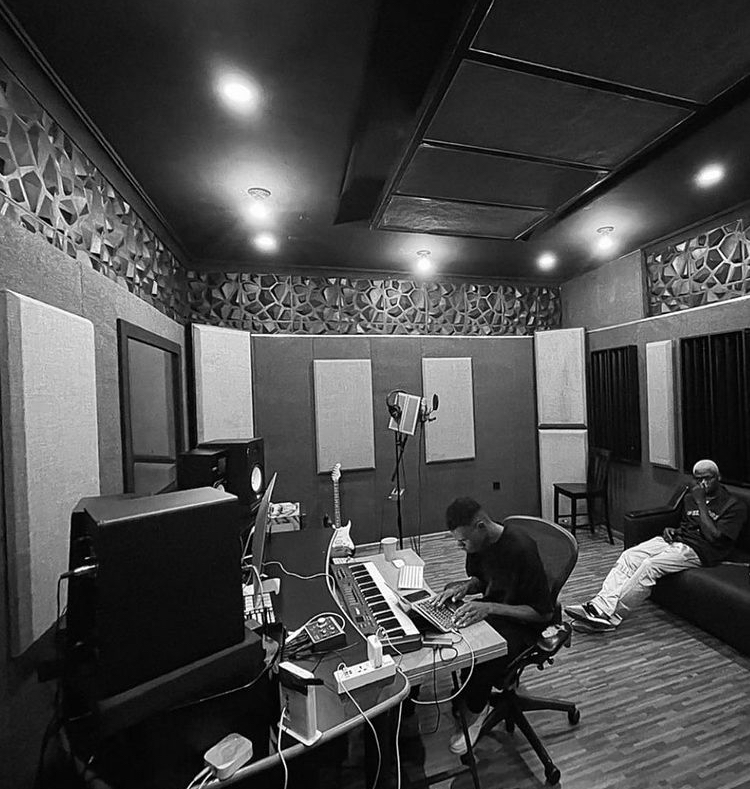
Nigerian Producers Rexxie and Niphkeys Champion Afro-Street Music in Africa
Gone are the days when indigenous music genres were behind the scenes or hardly recognized. With the recent evolution of art and music globally, more sub-genres have been birthed and are gradually becoming accepted and adopted across the globe. Nigerian producers Rexxie and Niphkeys have contributed to the influx of hits for the Afro-street sub-genre and deserve some accolades.
Since the turn of the century, Nigerian music has experienced an overwhelmingly positive trend, attracting collaborations across continents with musicians and producers from various sub-genres as the unique Afrobeats genre has developed. In the Afro-street (street-hop) sub-genre, Nigerian musician Olamide is a legendary pioneer with formidable influence. In any case, It would not be appropriate to discuss the sound without referring to these two outstanding producers responsible for the bulk of the records on the frontlines of its rapid growth..
Afro-street music as a sub-genre of Afrobeats reflects an in-depth aspect of the Nigerian people, culture, and lifestyle. The upbeat and fast tempo songs often saturated with energy, vigor, and expressive creativity in the dance moves that accompany almost every record is representative of a fusion of the struggle and success of Nigerian youths.
Prominent Nigerian producers Rexxie and Niphkeys are two spectacular music producers known for multiple hit records in the street-hop scene by superstars from Nigeria, South Africa, and beyond.
Rexxie
Ezeh Chisom Faith is a Nigerian super-producer famous for his ‘Yo Rexxie Pon Dis One!’ tag. The Nigerian producer is known for his contributions to hit songs such as “KPK”, “Zanku”, “Able God”, and two albums. The Grammy Award-winning producer has played an essential role in the emergence of Nigeria’s Afro-street music culture.

Over the past few years, Rexxie has been a pivotal player in the formative years of Afro-Street music. A new kind of indigenous Nigerian rap characterized by rapid danceable rhythm patterns, humor, and street slang that has gradually grown to earn international recognition.
RadrAfrica chats with the man behind most of the West African street sounds on carving his niche, projects, and the dynamics of Nigerian street music.
How long have you been producing, and when did it all begin?
I started music production about ten years ago, but the mainstream era would be around five years now. As an instrumentalist for my church and school band, I became curious about how songs are produced. That curiosity birthed my zeal to want to make beats. When I moved to Lagos, the vibe was different so, I wanted to be a part of the music scene.
It began with a lie or half-truth (laughs). I told my friends I made beats and played a downloaded instrumental that they recorded on and loved, So they wanted me to make another one. I couldn’t, so I challenged myself to get the necessary equipment, self-taught myself, and kept improving one beat after another.
You are synonymous with Afro-street (street-hop) music in Africa, what is behind the inspiration for the sounds you create?
Well, as I said, I was familiar with playing musical instruments and there has always been core street music that people who weren’t ‘Ni nu trenches’ would normally find pleasing to the ears, but that was the environment I found myself and I was fortunate to work with those artists due to their openness. I met Zlatan and because of my musical background, I knew how to fuse melodies with the street lingo which gave songs like “Able God” and Naira Marley’s “Soapy” the vitality it oozed and that musical inclination complemented the ‘lamba’ and vibes they brought to the song.
With that, I wanted to be that producer that could properly create a fusion between the core street sound and Afrobeats. So, we were able to create a complete song that satisfied their aim to make listeners dance, and at the same time, sound pleasing to the standard Afrobeats lover in terms of message and musicality.
How would you describe your creative process, and what drives you to produce or work with an artist?
For me, my creative process evolved from when I just started till now. Back then, I was open to making beats from scratch with the artist present. They could want a particular drum line and I would spice it up with a chord that adds emotion to it. But every creative person grows and begins to explore new ways to create. So presently, I prefer to make my beats and surprise the artists when they come around.
Working with Artists has never been an issue for me because I am open to creativity. As long as you feel like I can produce what you would like to use to pass your ‘lamba’ or message across, we will create magic. That’s always the case with Naira Marley and other artists when we work together.

For a long time, music producers were less credited, but things are changing. What do you think influenced the recent light shone on African music producers?
The truth is, as Afrobeats and its sub-genres continue to grow, producers will be appreciated for their contributions. If we take it back to the times of Fela, he didn’t joke with his instrumentalists. Until recently, producers treated their craft as a job rather than art which also contributed to undermining.
Now, as more music producers began to come up, artists became open to collaborating with producers (shout out to the street guys I worked with). Some of these artists couldn’t afford to pay what the producers asked for, so they just had to let the producers promote themselves. Some others were willing to put them on and give producers they worked with their full credits. That made more producers see themselves for more, and the narrative began to change gradually.
You have made several hit songs for superstars as a “street producer”. Did anything change in terms of perception with your recent Grammy accolade?
Well, I would say people started to pay more attention even before the Grammy award. When people discovered that I could produce songs for Artists outside of the street music scene, there was a realization that okay, this guy can do more than just zanku music. Also, the songs we made gained massive love from the UK and America so, the Grammy was just like a golden seal to show the industry that there’s more to Rexxie and street music.
Another thing that changed the perception of street music in Nigeria was the audience the dance community built through the likes of Poco Lee and co. It opened doors to listeners from across the globe, and more people began to accept and enjoy Afro street music.
Let’s talk about your Album – A True Champion. It had the expected street hits and songs outside of the norm. What inspired the collaborations such as Frenemies, Motherland, and Booty Bounce?
The Album “A True Champion” is an all-around album, and I didn’t want to make an album that confined me to a particular idea as just another Nigerian music producer. I also wanted to carve a niche for myself as an artist as well. I’m not trying to be the guy that produces other people’s albums. With the diversity in the album, when you listen, you will feel the Rexxie in every track. So, I want to make a solid mark that cuts across other genres while retaining the unique Rexxie touch, kind of how Dj Khaled stands out with his sound and projects, and that also starts from somewhere.
I’m forever thankful for “KPK” because that song made people understand a lot about me. I wanted people to realize that I’m also an Artist and can release songs with other Artists, as you can see in Sarkodie’s new song that features Zlatan and Myself. I am a brand myself, and with my project, I also wanted to let other Nigerian producers know that they can do more than produce songs for others.
Interesting. As an experienced producer in the mainstream music scene, what has kept you in the game for this long?
There are a lot of things that have kept me apart from God’s grace. Character, good relationship, maintaining good stability in the industry, and more importantly, knowing my worth and doing the work that will earn me my deserved accolades. As I have grown these past few years, I try to build my audience and put my strong foot forward. I also looked for ways to put a face to the tag ‘Yo Rexxie Pon this one!’ and stay relevant outside the music.
You have been effectively giving back to the industry through your Hitxlab academy. What inspired that initiative, and how has the journey been so far?
So, we have Hitxlab as an entertainment company and Hitxlab as a music production academy that is more of an empowerment hub. We have created a platform that is not all about Rexxie but a music hub where you can get your next hit record. The Hitxlab happens quarterly for now, with about 15 young producers in a camp for three days, and we have guests to speak to them, groom them, and make music together.
Over time, we connect them with higher levels of production, clients, and opportunities. For now, we have just signed one producer – Horsh (Medua) from the recently completed camp that produced Zinoleeskey’s recent song “Gone Far“.
This is a way to encourage other producers to work hard and help build a strong community of African music producers.
What can be done for music producers to earn their deserved recognition and foster growth in the music industry?
I will be honest with you. Nigerian producers need to big up themselves. If people don’t give you your flowers, you pluck one for yourself. More producers should think or dream beyond being just the guy that makes the beat. One thing is if you don’t show the world that you believe in yourself enough, you may not find people that believe in you enough.
Most producers do not actively promote the songs they produced. You know there’s no extra effort to push the record from the producer aside from relying on the artist to do the promotion themselves. It shouldn’t be the case. So, more producers should actively talk about their art. You are a part of that great song and should be proud to tell the world you made that possible. More Artists can jump on more collaborations to foster growth in the industry because it’ll be a win-win for artists and producers.
Niphkeys
The name behind Naira Marley’s “Koleyewon” is a Nigerian music producer and sound engineer popularly known as – Niphkeys.

Adebajo Oluwanifemi Adebanjo, known as Niphkeys started music production professionally in 2016 and is the brain behind some of the hottest songs to come out of Nigeria in the past year. Afro-street hit records such as “Koleyewon” by Naira Marley, “Kilofeshe” and “Mapariwo” by Zinoleesky are but a few of the songs that have put Niphkeys on the frontlines of Afro-street/fusion in Nigeria.
A chat with the record producer sheds more light on his skills, journey, and forthcoming projects.
What made you go into music production, and how did it all begin?
Okay, I loved music from my teen years, and I fell in love with playing the piano around 2010. While in the university at Abeokuta, I wanted to do more, so I attempted to make my first beat. I liked it, and my professional music production career kicked off in 2016.
I had a small studio back there at Abeokuta where I would make beats, record my friends, and kept pressing on.
Why the name Niphkeys, and how did that come about?
Well, my name is Nifemi, and I love playing the piano, so it just came naturally to me. It was easy to put that together, and the first time I thought of it, it just sounded cool, so I stuck with it.
Intriguing. So, what would you consider your breakout or first hit record, and how did that come about?
That would be Kilofeshe by Zinoleesky. The build-up to that song was what I would describe as destined. So, I had been at one of Lyta’s recording camps where I met Zinoleesky, and we had a great vibe. During the lockdown period, we vibed together for a couple of weeks before I returned home.
While at home, I decided to work on my craft, and I made a ton of beats across multiple genres before returning to the Marlian house. That particular day, Zino wanted us to make a song, so I played several instrumentals, but when I played the Kilofeshe beat, the room just lit up with excitement, and he was like, “yo! This is the one, let’s do this”. The funny thing is, I didn’t initially like the beat, it was just one of those beats I made down, but he and everyone in the house that day loved it, so we just made the song.
Everyone has a creative process unique to them. How would you describe yours, and what drives you to produce for an artist?
Well, the thing is, Kilofeshe is like the only song I’ve made that was a premade beat. I usually like to make my beats from scratch while the artist is present. I love to vibe with the artist. That way, I can experience the artist’s process and compliment it with my creative skills. That way, I’m able to make suitable additions to make the song complete.
I love working with artists that know what they’re doing. Know what vibe you want to bring, have some creativity oozing from our session. At least if the artist is even having difficulties, I would be able to add my ideas, and we can make magic.
The bulk of your discography is street-hop or Afro-street music. Why that particular sound?
Okay, I wouldn’t like to confine my sound to a particular genre per se because I produce different sounds. It’s most likely because most of the songs out and has me out there are mostly Afro-street. There are several Afro-pop and R’n’B music by me, but most are yet to be released. A lot more music will be out soon, and people will understand.
There are a lot of talented producers in the industry. What makes you stand out from your peers?
Well, the truth is when I’m making a beat, All I do is have fun with it. One constant thing with my sound is vocal samples. I add a lot of vocal samples to my beats cos it gives me a sort of fulfillment when I hear the beat.
Afrobeats has a lot of exceptional producers, so for me, it will just be God’s grace and consistency. I always feel like I’m not doing enough, and it pushes me to work twice as hard as I would have done.
You are undoubtedly a force to be reckoned with in the production scene with hit records for several superstars. How has that impacted your growth and vision as a music producer?
It has been God all the way. The way I see things now changed from when I started music production years ago. The things I thought I would be doing in five years are more than I could have imagined. The way people accept and enjoy the music makes me want to do more. It made me realize I shouldn’t limit myself to what I can achieve or who I work with within the industry.

Since your debut as a producer, you’ve produced records for superstars in and across the country. Which artists are you looking forward to working with at home and abroad?
Yes oh! Drake (laughs). I would love to work with Drake for sure. Kanye also hits that list for me because he loves to sample a lot, and I know I will enjoy working with him and vice versa.
So, on your bio, you put something about producing with ‘D Trips’. Care to shed more light on that?
Okay, so ‘D Trips’ is a producer group consisting of 3 producers, My younger brother (Ibksleek), Tori Keeche, and Myself. So whenever we co-produce, we combine our skills to give full trips. Our first official production was “Mapariwo” by Zinoleesky, and you can feel the vibe when you listen.
That’s interesting. The industry has producers reeling out collaborative projects like EPs and Albums. Is there anything of such in your plans for the future?
Of course, I am working on a project to be released soon, and several songs will be out in due time. Like I said earlier, with my music journey, I am just here to enjoy myself and extend the love and enjoyment to lots of other people as much as I can. There will be a lot more Niphkeys soon so, brace yourselves because there is so much more.
There is a promising future for African music as the afro-street genre progresses from being a little-known sound to being widely accepted. With more Nigerian music producers making huge strides with their craft, the future is bright for African music.
3 Comments
Leave a Reply
You must be logged in to post a comment.
[…] “Okay, I wouldn’t like to confine my sound to a particular genre per se because I produce different sounds. It’s most likely because most of the songs out and has me out there are mostly Afro-street. There are several Afro-pop and R’n’B music by me, but most are yet to be released. A lot more music will be out soon, and people will understand.” – Niphkeys interview with RadrAfrica […]
[…] rhyme pattern that is complimented by his deep voice. He then passed the baton to Mr feel good; Mohbad who equally brought his enjoyable vibes to the song. Together, they both encourage the listeners to […]
[…] pattern that is complimented by his deep voice. He then passed the baton to Mr feel good; Mohbad who equally brought his enjoyable vibes to the song. Together, they both encourage the […]